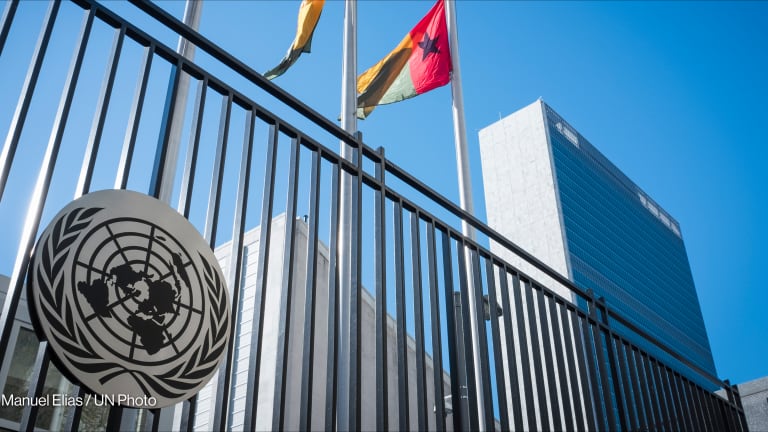
Another MDB leadership race kicks off, the U.S. Senate rejects Trump’s aid cuts, and the U.N. chief holds the line on climate change commitments. This week in development:
The president of the Asian Development Bank, Takehiko Nakao, announced that he will resign from his post before the end of his second term. He will step down on Jan. 16, 2020. “I feel this is a good time to ask someone with fresh ideas and strong commitment to development to succeed me. I announce my resignation now so that the institution can have a smooth transition of presidential administrations,” Nakao said in a statement. Since its founding in 1966, the ADB’s president has always been from Japan — the institution's largest donor, along with the United States. The Japanese government is expected to nominate Masatsugu Asakawa, a former vice finance minister for international affairs, to succeed Nakao. Some news outlets have reported that there is speculation China might challenge Japan’s nomination with a candidate of its own. ADB has seen increasing competition from recently established development finance institutions led by China — the Asian Infrastructure Investment Bank and the New Development Bank. Despite Japan’s historic hold on the position, Nakao said the election for the new president will reflect an open, transparent, and merit-based process. During his tenure, Nakao oversaw the merger of its two financing windows — the Asian Development Fund and the Ordinary Capital Resources — the launch of a new procurement framework, and a new Strategy 2030, which included a major increase in climate finance commitments.
The U.S. Senate Appropriations Committee approved spending levels for U.S. foreign affairs programs on Wednesday, which could lead to a modest increase in development funding in the 2020 fiscal year. The State, Foreign Operations, and Related Programs Subcommittee was allocated $55 billion — a 1.4% increase over 2019 enacted funding levels. By comparison, the Trump administration requested a 24% cut to development and diplomacy in its fiscal year 2020 proposal in March. It remains highly unlikely Congress will pass a foreign affairs budget before the fiscal year ends on Sept. 30, and will likely resort to a continuing resolution to buy more time as the appropriations process continues. Republicans and Democrats remain staunchly divided over the Mexico City policy, which bars organizations that provide — or even supply information about — abortions from receiving funds, as well as funding for family planning. The bill includes substantial support — $1.56 billion — for the Global Fund to Fight Aids, Tuberculosis and Malaria, which is in the midst of a replenishment cycle, and it rejects a Trump administration proposal to amend the U.S.’ commitment to match pledges by other Global Fund donors. In response to recent reports that the White House will issue a policy directive based on a “foreign assistance review” it has carried out over several months, the Senate committee issued a preemptive message that any significant changes would require its approval. “None of the funds appropriated by this Act ... may be used to implement the recommendations of any foreign assistance review,” until that review is assessed by the Government Accountability Office, lawmakers wrote. They also noted that, “the administration did not meet, consult, or otherwise engage with the Committee during the conduct of its foreign assistance review.”
United Nations Secretary-General António Guterres is not backing down from a pledge to limit participation in the upcoming U.N. Climate Summit to countries ready and willing to make significant new commitments to fighting climate change. According to a draft schedule obtained by the Financial Times, some major coal supporters will not take the stage, nor will countries that have turned away from the Paris climate agreement. Guterres has repeatedly stressed that the purpose of this summit is for world leaders to show a concrete and realistic commitment to enhancing their countries’ nationally determined contributions — the plans that form the backbone of the Paris Agreement — by 2020. Excluded from the list of participating countries at Monday’s summit are: Australia, Japan, South Africa, U.S., Brazil, and Saudi Arabia, according to the FT. “I told leaders not to come with fancy speeches, but with concrete commitments. The U.N. is already doing its part,” Guterres told reporters on Wednesday. Climate advocates have widely praised the secretary-general’s resolve. “In all the time I have worked on climate change I’ve never seen the UN take a powerful stand like this,” Justin Guay, director of global climate strategy at the Sunrise Project, wrote on Twitter.








